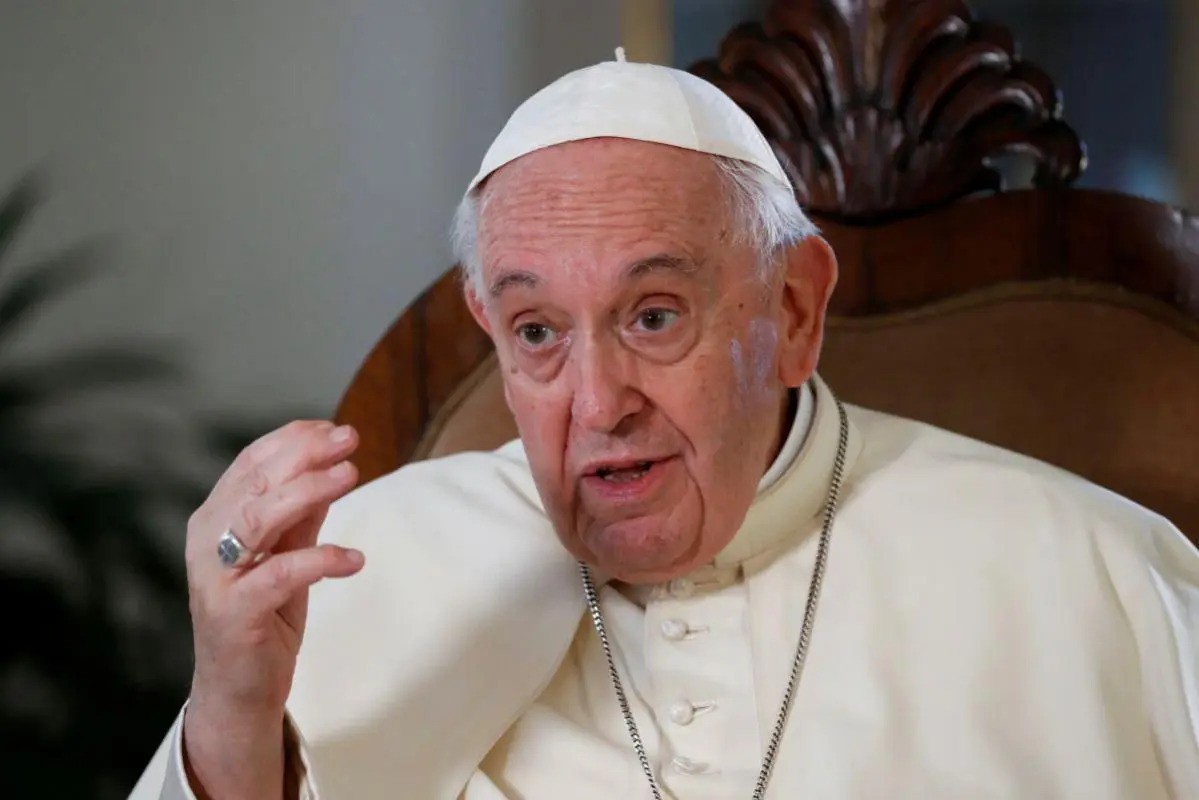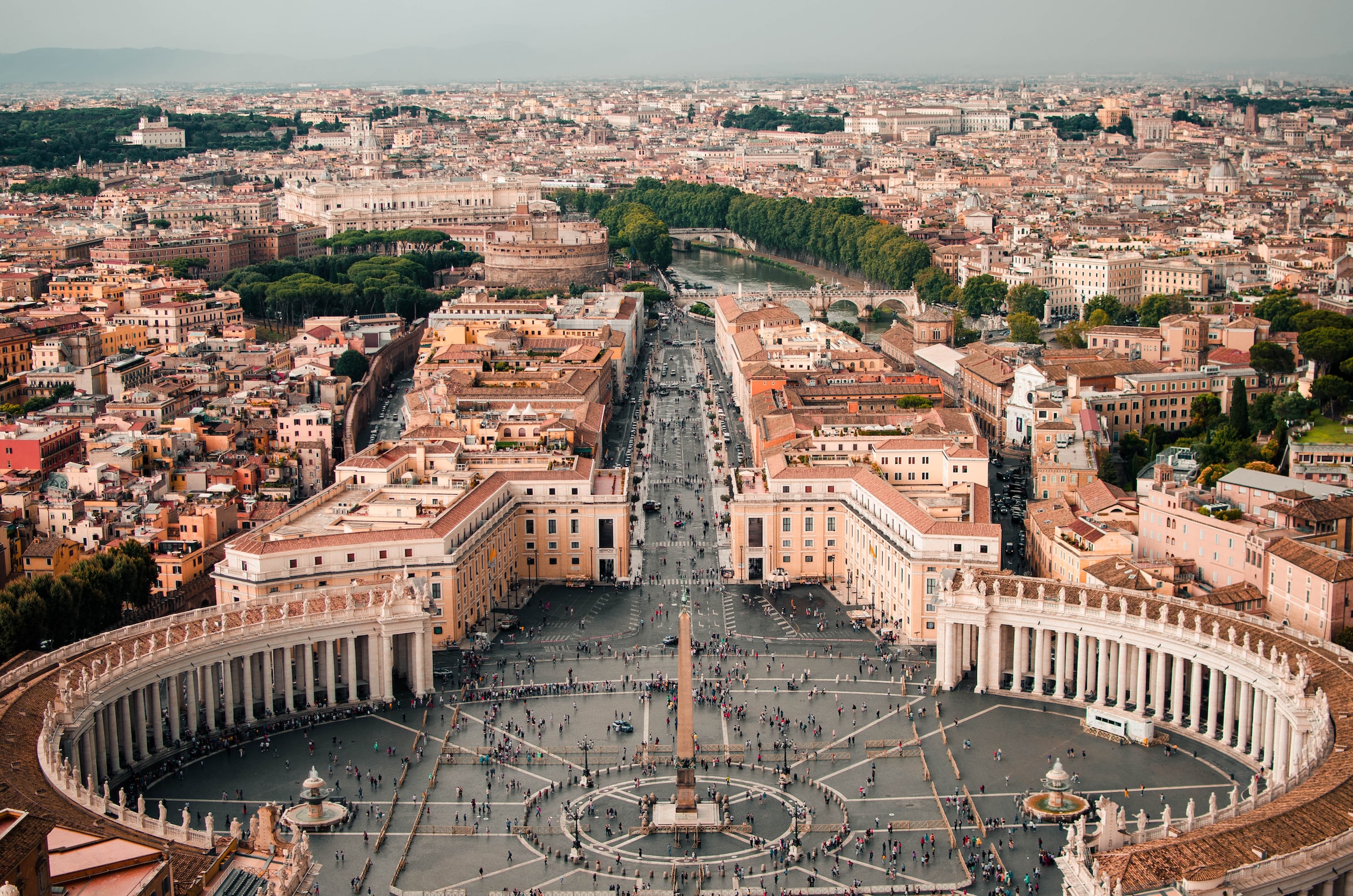Pope Approves Blessings For Same-Sex Couples With Clear Distinction From Marriage
Pope approves blessings for same-sex couples with clear distinction from marriage, marking a significant departure from previous policies. This move is aimed at fostering greater inclusivity within the Catholic Church while upholding its steadfast opposition to gay marriage.
Author:Bernard HorneDec 20, 20231.4K Shares83.1K Views

Popeapproves blessings for same-sexcouples with clear distinction from marriage, marking a significant departure from previous policies. This move is aimed at fostering greater inclusivity within the Catholic Churchwhile upholding its steadfast opposition to gay marriage.
While some praised the Vatican's statement as a positive step towards reducing discrimination within the Church, certain LGBTQ+ advocates cautioned that it might reinforce the perception that the Church regards gay couples as inherently inferior to heterosexual partnerships.
The document released by the Vatican's doctrine office elaborates on a letter that Pope Francis wrote in response to two conservative cardinals and published in October. In that preliminary response, the Pope indicated that such blessings could be permissible under specific circumstances, provided they were not confused with the sacrament of marriage.
The latest document reiterates and provides further detail on the condition, emphasizing the traditional view that marriage is a lifelong commitment between a man and a woman. It underscores that the blessings in question must not be associated with any particular Catholic celebration or religious service.
Also, these blessings should not coincide with a civil union ceremony. Furthermore, the document specifies that such blessings must avoid using established rituals and should refrain from incorporating attire and gestures typically associated with weddings.
The document explicitly states that requests for blessings for same-sex couples should not be rejected. It provides a comprehensive and expansive interpretation of the term "blessing" as found in Scripture. The intention is to emphasize that individuals seeking a profound connection with Godand searching for His love and mercy should not be subjected to an unattainable moral standard as a prerequisite for receiving such blessings.
"For those seeking a blessing should not be required to have prior moral perfection. There is no intention to legitimize anything, but rather to open one’s lifeto God, to ask for his help to live better, and also to invoke the Holy Spiritso that the values of the Gospel may be lived with greater faithfulness," it said.
The document represents the most recent expression of inclusivity from a pope who has consistently prioritized the acceptance of LGBTQ+ Catholics throughout his papacy. Starting with his 2013 remark, "Who am I to judge?" in response to a reportedly gay priest, and continuing with his 2023 statement that "Being homosexual is not a crime," Francis has set himself apart from all previous popes by delivering a welcoming message.
“„The significance of this newscannot be overstated. It is one thing to formally approve same-gender blessings, which he had already pastorally permitted, but to say that people should not be subjected to 'an exhaustive moral analysis' to receive God's love and mercy is an even more significant step.- Francis DeBernardo of New Ways Ministry, which supports LGBTQ+ Catholics
The Vatican maintains the view that marriage is an unbreakable union between a man and a woman. Consequently, it has consistently opposed same-sex marriage, deeming homosexual acts "intrinsically disordered." The recent document does not alter this doctrinal stance.
In 2021, the Vatican's Congregation for the Doctrine of the Faithexplicitly stated that the Church could not bestow blessings on unions between two menor two women, asserting that "God cannot bless sin."
The pronouncement in 2021 sparked widespread criticism and seemed to catch Francis off guard, despite his technical approval for its publication. Shortly after its release, he took action by removing the official responsible and initiating efforts to pave the way for a reversal.
The new document emphasizes the need for the Church to steer clear of "doctrinal or disciplinary schemes," particularly those leading to a self-centered and authoritarian elitism that, instead of evangelizing, engages in the analysis and classification of others.
The document underscores that, fundamentally, a blessing should contribute to fostering people's trust in God. It describes a blessing as a seed of the Holy Spiritthat requires nurturing rather than hindrance.
The document emphasized that individuals in "irregular" unions involving extramarital sex, regardless of being in same-sex or heterosexual relationships, are considered to be in a state of sin. However, it asserted that this should not preclude them from experiencing God's love and mercy. According to the document, a person can always ask God for a blessing even if sin has obscured their relationship with Him.
"Thus, when people ask for a blessing, an exhaustive moral analysis should not be placed as a precondition for conferring it," the document said.
The Rev. James Martin, a proponent for a more inclusive stance toward LGBTQ+ Catholics, commended the latest document as a "significant advancement" and a "remarkable departure" from the Vatican's policy in 2021.
“„Along with many Catholic priests, I will now be delighted to bless my friends in same-sex marriages.- Rev. James Martin
On the other hand, traditionalists expressed outrage. Luigi Casalini, a traditionalist blogger from the Messa in Latino (Latin Mass) blog, contended that the document seemed to verge on heresy. "The church is crumbling," he wrote.
University of Notre Dame theologian Ulrich Lehner expressed apprehension, suggesting that the document could potentially sow confusion and give rise to division within the church.
Expressing concern that certain bishops might exploit the document as a pretext for actions explicitly forbidden, the professor lamented, "Regrettably, it seems to be an invitation to schism."
The document, titled Fiducia Supplicans (Supplicating Trust) in Latin, emphasized that the form of the blessing "should not be rigidly prescribed by ecclesial authorities to prevent confusion with the blessing inherent to the Sacrament of Marriage."
It stated that the blessing could be extended to those who "do not claim a legitimation of their status, but who beg that all that is true, good, and humanly valid in their lives and their relationships be enriched, healed, and elevated by the presence of the Holy Spirit."
"Ultimately, a blessing offers people a means to increase their trust in God," the document asserted, emphasizing that it "must be nurtured, not hindered."
The document underscored that the blessing should not coincide with or be associated with a civil marriage ceremony, avoiding any elements such as "clothing, gestures, or words proper to a wedding."
It suggested that these blessings could take place in alternative settings, such as "a visit to a shrine, a meeting with a priest, a prayer recited in a group, or during a pilgrimage."
Conclusion
The decree was endorsed by Cardinal Victor Manuel Fernandez, the head of the Vatican's Dicastery for the Doctrine of the Faith, and received the pope's approval in a private audience with Fernandez and another official from the doctrinal office on Monday.
Jump to

Bernard Horne
Author
In this signature of the father, Jesus, and the holy spirit. Exploring how God’s Word challenges us to live 100% according to His will so that we can come to a life of victory!
Latest Articles
Popular Articles
